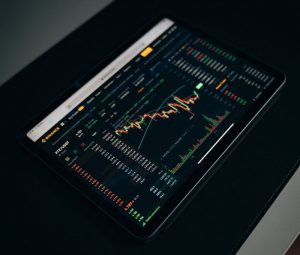Two-Tiered Society: A New Era

Did you know that there are two tiers in our society?
Rich vs. Poor
There is the Rich and the Poor, and the gap is growing faster and faster. The middle class is being eliminated. How is this happening?
While there are several variables affecting the loss of the middle class, one chief problem is that the U.S. school system does not teach us enough about the subject of money. Due to this lack of education, we have a massive rising national deficit and a negative savings rate.
What little financial education we do get typically comes from those we know such as friends and family, many of whom are poor managers of their money.
When I worked at a financial services firm, I would ask those my age “do you want to be in the same place your parents are financially?” Many of them would respond “no,” but then would continue to take investing advice from dear old dad or someone else they believed in. While they do have your best interest at heart, be mindful of where they are coming from.
In the Information Age, what was once considered “smart” advice for money management is now “dumb.”
Example: Let’s say that dear old dad tells you you should “save your money,” “buy tax-free municipal bonds,” or “buy a well-diversified portfolio of mutual funds” for your long-term financial security.
Here are the problems I see with those nuggets of supposed wisdom:
- He is not preparing you for the possibility of working without trading time for money. Maybe you aren’t interested in that, and if so, then this is good advice. If you want to cling to the false idea of job security, hope that the company 401(k) and other benefits will save you, or that the government will take care of you in old age then God bless you. What he is preparing you for is to continue trading time for money, while “saving” some of your earnings on the side in preparation for retirement…an old Industrial Age idea.
- Inflation is out of sight. The cost of food and fuel has sky-rocketed, and these two staples aren’t factored into the core inflation number you hear on the news. Oops.
- The reason inflation is out of control is because the Federal Reserve is printing more money and putting it into circulation. The “Economic Stimulus” we got was really a further tax on the American people, since we are deeply in debt as a nation already and will have to pay back those checks we got with interest at some point in the future.
- Over time America has to do something to pay down it’s debt. I’m thinking that will mean tax increases or government services being cut. I’m seeing signs of this already: local towns in my area, due to budget pressures, are banding together to try and buy materials in bulk to save money, such as sand to put on the roads after plowing this winter.
- If taxes increase, I would watch your exposure to earned income sources (savings in a savings account, bonds, CD’s, 401(k)’s, and Traditional IRA’s are all subject to earned income taxes) since those will be the easiest sources of income to tax. Secondly, I would keep an eye out for new law changes that will affect your other investments. I’m not trying to give you specific advice here, just trying to point illustrate that things will change over time and that’s why it is so important to have your Financial IQ so that you can correct course based off what you see happening in the world.
- Many people will see their retirement nest eggs depleted by somewhere between 20-30% when they begin withdrawing from their 401(k)’s and IRA’s, since they will be taxed on that earned income. Not good news. See a Bureau of Labor Statistics article.
- On top of that, when there are millions of people selling shares of stock, as they must by law at age 70 1/2 from their IRA’s, there will be a flood of stocks entering the market with no buyers. The law of supply and demand seems to dictate a crash when this happens.
- This domino effect will hurt many people. As Gen Y finds it harder and harder to stay afloat with high student loan debts, the rising cost of living, and the need to consume left over from their college days, the option to “move in with mom and dad” and have them foot some of the bills just won’t be an option.
We as Gen Y will need a better strategy to achieve our long-term goals. Part of this is increasing our financial intelligence so that we can understand where our money is best invested. There are much higher-yielding investment vehicles out there, if you have a greater financial education.
Out of the 3 different types of income (earned, passive, and portfolio), passive and portfolio are the most tax-advantaged. While the above examples were for earned and portfolio income, passive income from real estate and other intellectual property assets provide the greatest tax shelter.
That sounds like a bold statement, so how does it work?
A 1031 tax-deferred exchange is a law within the tax code that allows real estate investors to move their capital gains in their properties to another property without having to incur taxes until a later date. If you continue to use this strategy, you can continue deferring taxes indefinitely. For more information, see the IRS rules here: 1031 Exchange .
Conclusion: There are going to be those that don’t worry about paying their bills, and those that do; those that are rich, and those that are poor. Choose which side you want to be on, and do everything you can to learn the information you need to get there. The best part is we live in the information age: information is plentiful.





